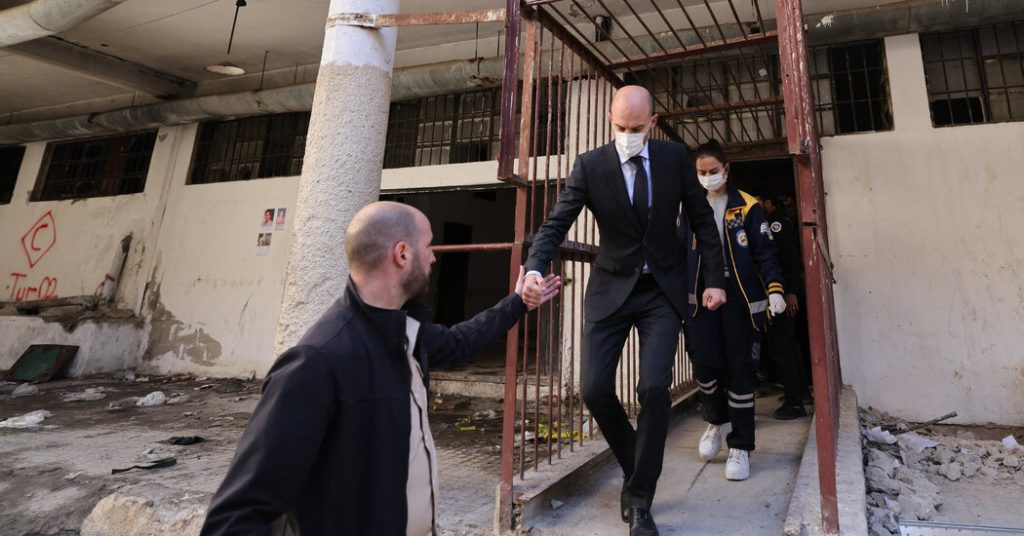Syria’s new leaders are set to meet with the French and German foreign ministers, marking one of the highest-level Western diplomatic visits since the fall of President Bashar al-Assad. Annalena Baerbock and Jean-Noël Barrot, representing the European Union, arrived in Damascus to meet with Ahmad al-Shara, the leader of Hayat Tahrir al-Sham, the Islamist group now in power. The group has been blacklisted as a terrorist organization but is working to build ties with world powers and present a moderate image to the international community.
The European diplomats also visited the notorious Sednaya prison, where Mr. al-Assad’s regime tortured and killed thousands of detainees. Ms. Baerbock stated that they are traveling to Damascus to offer support to the new rulers but have clear expectations. She emphasized the importance of including all Syrians, regardless of ethnicity or religion, in the political process for a successful new beginning. Mr. al-Shara has called for the removal of sanctions on Syria and expressed a focus on rebuilding the country after years of civil war.
Several countries, including the United States, have begun forging ties with the new Syrian government. Many meetings have taken place between rebel leaders and Western officials in an effort to open channels to the new authorities. Mr. Barrot also visited the disused French embassy in Damascus as a symbol of potential re-engagement with Syria. The visit reflects a realignment in the Middle East, where Syria has historically held significant power and involvement in regional conflicts.
Hayat Tahrir al-Sham, though conservative and following tenets of political Islam, has distanced itself from Al Qaeda and the Islamic State. The group has administered much of Syria’s Idlib Province since 2017 and has laid out plans for establishing a new government. Rebel leaders are assuming key positions to oversee a transition, with a caretaker government set to be installed in consultation with Syrians of all backgrounds. A committee will also be established to create a new Syrian Constitution.
In other regional developments, the Iran-backed Houthi militia launched a ballistic missile at Israel, prompting air-raid sirens across central Israel but resulting in no serious casualties. Israeli fighter jets have flown missions to strike Houthi-controlled areas in Yemen, attempting to stop the attacks, which have escalated in recent months. The Israeli military also conducted strikes in southern Lebanon on Hezbollah sites as part of a 60-day truce that has largely held since late November. The cease-fire is set to expire in late January, with hopes from the United States and its allies for a permanent resolution.












